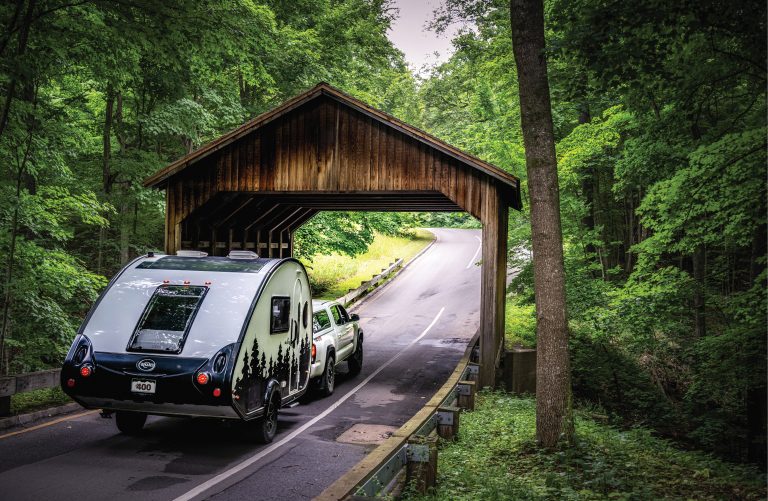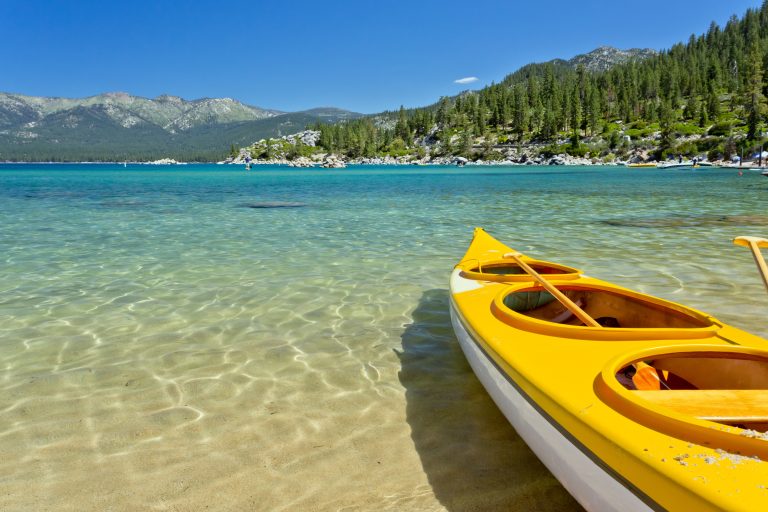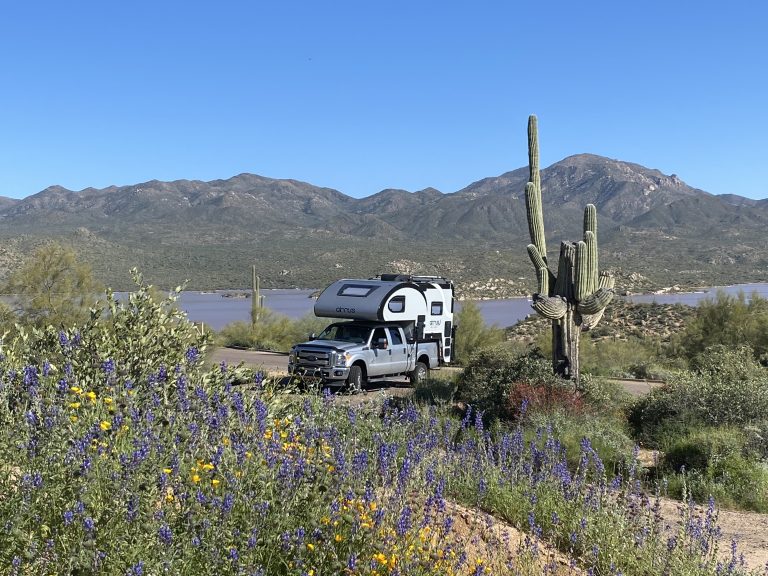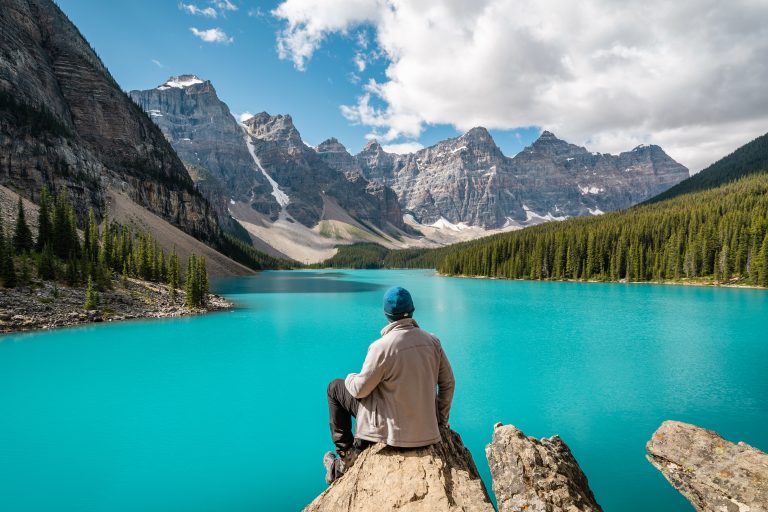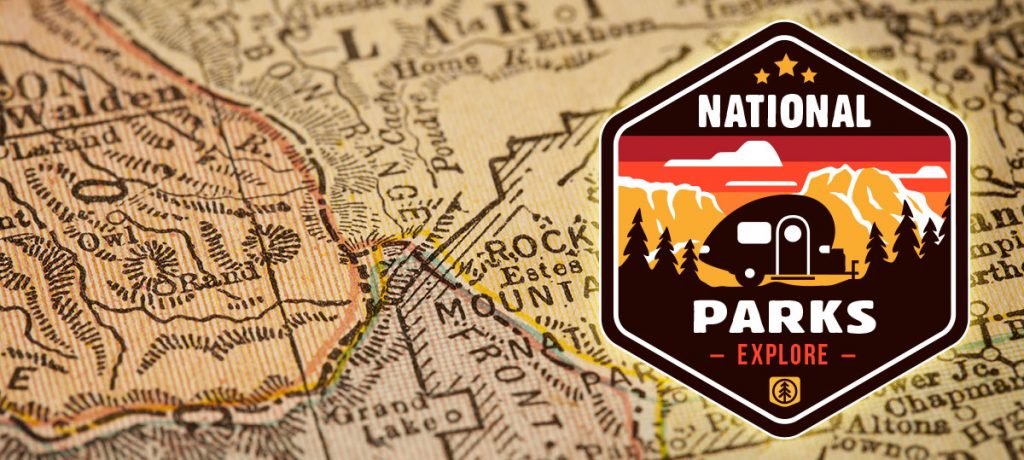Theodore Roosevelt National Park—Mailing Address: PO Box 7, Medora, ND 58645, Phone: (701) 623-4466, Website: https://www.nps.gov/thro/index.ht
The 70,448-acre Theodore Roosevelt National Park owes its existence to Theodore Roosevelt, often considered the “conservationist president” who first visited the Dakota Territory to hunt bison in 1883. It was subsequently named Theodore Roosevelt National Memorial Park in 1947 and became part of the National Park System in 1978.
Today, visitors to this national park in southwestern North Dakota can enjoy a diverse environment from sunny buttes and cool forests to floodplains and grasslands, and an equally wide-ranging plant and animal life: more than 400 species of plants and a wildlife population from bison and elk to cottontail rabbits, prairie dogs and chipmunks. (A short list of the park’s wildlife inhabitants can be found here.)
From scenic drives through the North and South Units offering sweeping views of the colorful landscape to the miles of hiking trails—from paved walking paths and rugged wilderness routes—those who come to Theodore Roosevelt National Park have multiple opportunities year round to enjoy the three preserved areas of rugged, beautiful badlands. And no visit to the park can be complete without enjoying the peaceful solitude of Elkhorn Ranch Unit. Originally built by Roosevelt in 1884, the remote location is now preserved as the site of his “home ranch.”
In addition to the natural beauty of its landscape, the park has much to those who enter its borders, from programs geared to young visitors such as the Junior Ranger Program and guided ranger programs to presentations and tours to the annual Dakota Nights Astronomy Festival. And for those who want to plan a longer stay within the park’s territory, the park also has two campgrounds and a group site for camping with horses. More information about the park’s natural features and ecosystems is available here.
Accessibility
To make the park’s features available to the widest group possible, numerous areas are wheelchair accessible, including all three park visitor centers and the Maltese Cross Cabin. The campgrounds and Roundup Horse Camp have restrooms that meet ADA access requirements, accessible campsites. There are also wheelchair accessible pullouts and overlooks along the scenic drives in both the North and South Units.
Additionally, the short trails at the Skyline Vista Overlook and Boicourt Overlook in the South Unit and the Little Mo Nature Trail in the North Unit are hard-surfaced with minimal slope.
Entrance Passes and Other Fees
All visitors, age 16 and over, must pay an entrance fee or show a valid pass. Fees can be paid at entrance stations May through September, and the South Unit Visitor Center, Painted Canyon Visitor Center and the North Unit Contact Station the rest of the year. Self-pay stations available when visitor centers and entrance stations are closed. Passes can also be purchased online at Your Pass Now.
- Private Vehicle: $30—Valid for seven days for all persons traveling in a single, private, non-commercial vehicle
- Motorcycle: $25—Valid for seven days for all persons traveling on a single, non-commercial motorcycle.
- Per Person: $15—Valid for seven days for a visitor traveling on foot, bicycle, horse, or other non-motorized means of travel. An individual pass is not required for visitors 15 and under.
- Commercial Tours
1-6 passenger capacity: $25.00 per vehicle plus $15.00 per person
7-15 passenger capacity: $50.00 per vehicle
16-25 passenger capacity: $60.00 per vehicle
Over 25 passenger capacity: $150.00 per vehicle
Visitors can purchase a Theodore Roosevelt National Park Annual Park Pass for $55, valid for purchaser and passengers in a single, private, non-commercial vehicle, or by other means such as on foot or by bicycle. Theodore Roosevelt National Park also has Special Use Permits (SUPs) for activities that benefit an individual, group or organization, rather than the public at large, with additional park pass information available here.
U.S. citizens or permanent residents with disabilities can receive the Access Pass—a free lifetime entrance pass to all federal areas charging an entrance fee that also provides a 50% reduction of expanded amenity fees. More information about national park passes and downloadable forms are available at the National Park website page.
Campgrounds
The park has two campgrounds: the Cottonwood Campground and the Juniper Campground, as well as the Roundup Group Horse Camp. Group sites and half the camp sites in the South Unit are available by reservation made through recreation.gov, with the rest are first-come, first-served basis. Note: All campgrounds are primitive with no hookups or showers.
Both the Cottonwood or Juniper Campgrounds have back-in and pull-through sites able to accommodate most large vehicles such as RVs and vehicles with trailers. While there is no maximum length, some sites will work better than others, depending on the size of your vehicle.
Backcountry camping is available for hikers and horseback riders, and is limited to 14 consecutive days. For the South Unit and the Elkhorn Ranch Unit, free backcountry permits can be obtained at the South Unit Visitor Center in Medora. Permits are not issued at the Painted Canyon Visitor Center. Campers are encouraged to register their location with park rangers and when the backcountry trip is completed, to notify rangers of their safe return.
Parking
Throughout the North and South Units of the park are numerous pullouts, overlooks and parking areas along the scenic drives. However, there is no camping or staying overnight along the park road or at any of the visitor centers. Also sections of the park roads may be closed due to weather, road construction, or other reasons, with the Road Closures section listing current status and information. Those driving RVs and other large vehicles should be aware that some roadways can be very narrow, have sharp curves and/or have steep grades.
Rules and Regulations
While pets are welcome in Theodore Roosevelt National Park, they should always be restrained on leashes 6 feet or shorter when not otherwise contained in a vehicle or tent. Pets may be walked along roads and road shoulders, sidewalks, parking areas, and in campgrounds and picnic areas; however, dogs are not permitted on trails within the park. Owners are required to clean up after their pets.
Horseback riding is permitted on all backcountry trails as well as cross-country, but not on nature trails or in general-use campgrounds and picnic areas. Riders must bring certified weed-free forage and follow all park regulations regarding horse use.
For more information about park policies, visit the Park Laws and Policies page. The Theodore Roosevelt National Park Superintendent’s Compendium, updated annually, is also available for download. For more about the National Park System, check out our Plan a Visit to A National Park post.
Recent Articles
